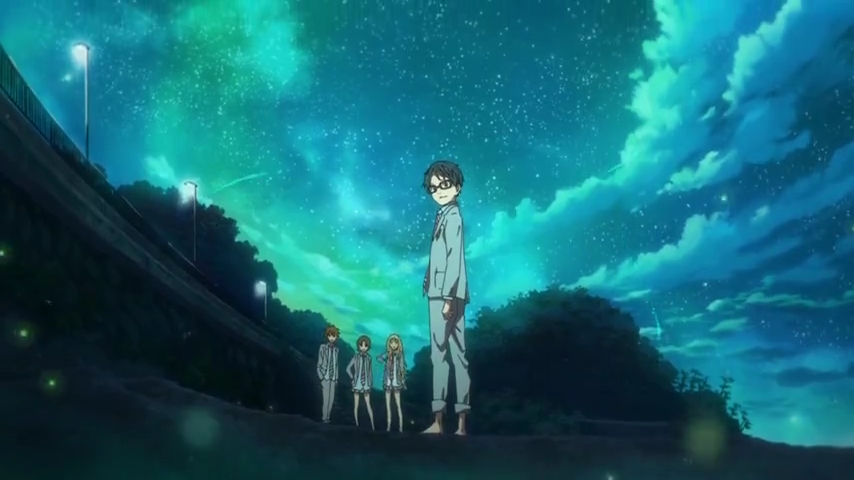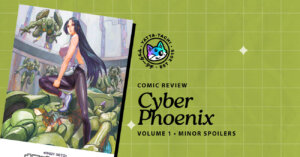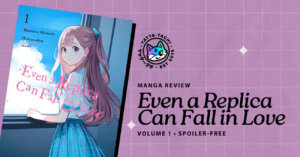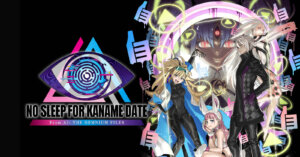While perhaps not the most unique premise at its most basic (a love story), Your Lie in April stands above the wave of anime currently being released. It’s a show that takes its time while also keeping the plot moving ever forward. The show tries to integrate heartfelt, somber moments alongside comedic ones, at times even within the same scene. During the first quarter to the first half of the show, it can be a little jarring to the mood; however, as the show progressed, I felt more invested in the characters and saw the comedy as more of an attribute of the characters’ young age or as a coping mechanism, depending on the context. There’s also a slight realism to it: not all somber moments in life are statically so, and we often try to lighten the mood by reacting in certain ways. Sometimes these comedic moments are a little over the top, but otherwise they aren’t terribly bothersome.
The characters are both well-written and relatable. Some naturally had more depth than others: in the first half, Kousei is the main focus of exploration, while the second half looks further into Kaori as a character. While there are some recurring characters that don’t receive too much individual attention or a real chance to shine (Watari and Kawashigi, for example), none of the characters feel frivolously added: each one has a purpose within the overall story. Each supporting cast member’s inclusion not only acts as a presence for Kousei (or Kaori, or Tsubaki) to interact with, but also accentuates the themes of the show, whether it be giving a new perspective on a theme, or further developing a given path. While not every character gets to experience extensive development, each one has significance.

One theme the show explores is the complications of the past and how it affects the present: from Kousei’s difficulties playing piano to how long-time relationships progress as we age. How much of the past do we hang onto, and how much do we let go of? At the same time, the show very much explores the here-and-now: this is done especially well through its music recital segments. Playing a piece in front of an audience, as well as sitting in a room and listening to someone perform, is a very in-the-moment experience, one that is difficult to recreate. Each musician wants to “reach” someone with their playing, and these scenes explore the question of how to express oneself quite well, from the piece selection to the characters’ inner dialogues. Some of the show’s most beautiful moments take place during performances, and the integration of its themes during those times is excellently done.
What impressed me so much about this show is how the music and animation were so carefully incorporated. The original music for the show, composed by Masaru Yokoyama, accentuates each moment it appears in, whether that be in a light-hearted scene, a flashback, or a moment of fear. The classical pieces are expertly selected, showcasing not only the imagined skill-set of each character, but their personality, as well. It is during these performances that the animation truly shines: each player’s fingers deftly move across the keys, their placement exact. The motions of Kaori’s arm as she plays the violin are also spot-on. To compensate for this, there are moments in the show in which still shots are used. While perhaps not ideal, they are still well-drawn pieces, and there isn’t an abundance of them.
Overall, I believe this show integrates all that it wants to achieve excellently. It takes an often-told story and makes it its own: from the personalities and nuances of the characters, to how it goes about exploring its themes, to the music that drives the characters forward or holds the characters back. The heart of the story is fully-realized and fully expressed. Nothing seems half-done or rushed through to get to something else. That aspect is what makes this show so expertly crafted. It fully realizes the story it wants to tell and takes care of each important aspect. While it may have a few odd notes here and there, it is beautifully crafted. A line repeated throughout the show is a question Kaori asks Kousei: “Do you think you’ll be able to forget?” I’d be hard-pressed to say that I will. Your Lie in April is a show that stays with you long after the final piece has been played.
Have any thoughts or opinions on Your Lie in April? Is there an anime that you want us to review next? Let us know in the comments below! Want to check out the show for yourself? Get a Crunchyroll Premium Membership & the first episode on Crunchyroll now!
The Good
- Wonderful animation, including details to slight finger movements when the characters perform
- Excellent music, from the pieces played during performances to the soundtrack itself
- Well-written and relatable characters
- Great story with complicated themes that are carefully explored
The Bad
- The tonal shifts between serious moments and comedic ones can be a little disruptive to the flow of the story
- A couple characters lack their own moments to shine

Featured Sponsor - JAST
The sweetest romance and the darkest corruption, the biggest titles and the indie darlings; for visual novels and eroge, there's nowhere better.
Big thank you to our supporters
From their continous support, we are able to pay our team for their time and hard work on the site.
We have a Thank-You page dedicated to those who help us continue the work that we’ve been doing.
See our thank you page




